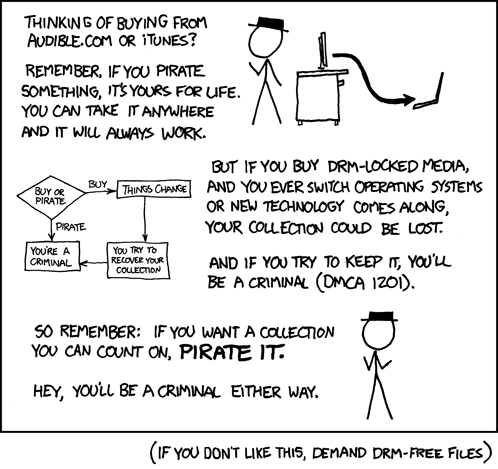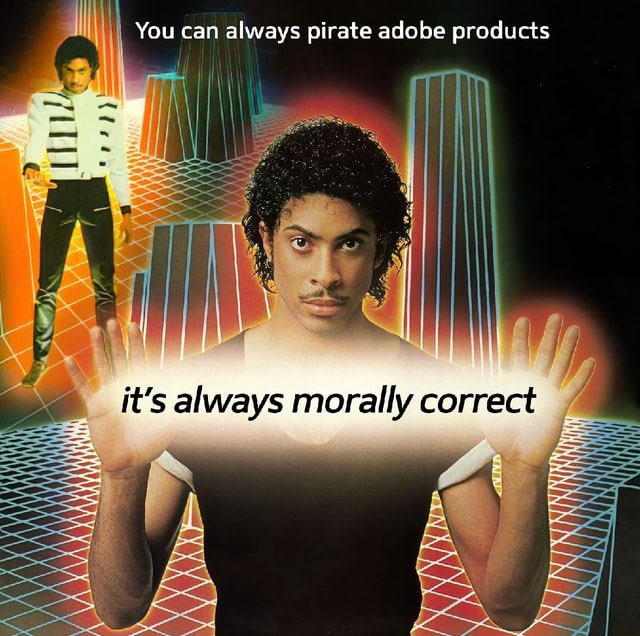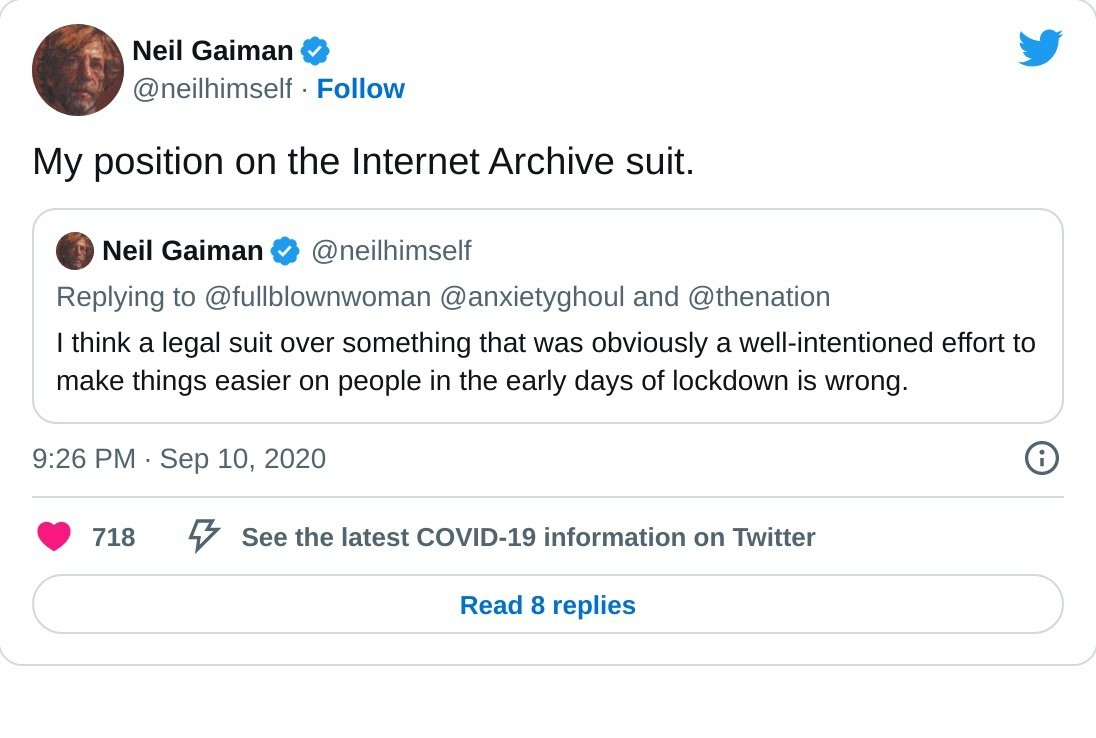I don't like DRM (Digital Rights Management). Why should I have more restrictions on a piece of software or media that I purchased than someone does who stole that same media?

So how do I reconcile this with my belief that artists should be paid for their art?
The argument against goes something like this: DRM makes a barrier for good, honest people. It stops them from giving away the software or sharing it widely.
I don't believe that. Even a physical lock only keeps honest folk honest. It's a sign that you don't want them in your backyard, not the end-all-be-all measure against them getting there. Picking a lock isn't terribly hard. Circumventing one is even easier.
So how does an artist get paid in a world with no DRM? They get paid by honest folk. Steam and iTunes (both platforms with DRM, I should add) both showed that software isn't unattainable. When you have affordable, accessible software, people buy it! Any song for 99¢? Hell yeah! Games going on sale for dirt cheap? Steam backlogs longer than a lifespan are a common pattern for PC gamers! And sure, some of that ties into Consumerism, but that's a different argument entirely.
What I'm saying is this: if you put out cheap software and make it accessible for people, they will support it. When they can't legally, easily, or affordably get that software, they stop supporting it and turn to piracy. I personally once bought five copies of Sentinels of the Multiverse on Steam because they were less than a dollar a piece. I knew I'd give them to friends eventually.
Whenever To The Moon or KOTOR dropped below $3, I'd grab a copy or two (TTM regularly went for 99¢). Eventually this got worse, as these things always do. Nothing gold can stay. But there was a brief time where we proved that piracy can be conquered.
Back to the point
That was a bit of a tangent. If you license your artwork and it's easy and affordable, most people will take that route. Yeah, some people will steal it anyway, just like some people continued to use LimeWire well after iTunes provided legal access for music.
Note: I am not suggesting that artists charge less for art. That's an entirely different argument, and not one I support.
My argument is mostly that those people aren't your customers. They were never going to buy your music anyway.
There are people who download an album or two a year. They might buy your music! Then there are people who download gigabytes of music every day. They aren't interested in your music, they're interested in owning the music. It's not personal. It's Consumerism.
There are studies that show that pirates are more likely to spend money on music compared to non-pirates. It seems counter intuitive! But think about it: the people who steal music are the people who really like music!
More than one-third of all music buyers (35%) pirate tracks on the side. Interestingly, this group appears to consist of the music industry’s most valuable customers.
The results show that average Americans (pirates included) spend $19 on CDs and music downloads per year, a number that goes up to $33 among pirates alone.
Perhaps they like more music than they can reasonably afford, or they try music before they buy it. I can't say. What I can say is that these things are complex
Adobe
Once, I knew a lot of freelancers who pirated Adobe. They'd steal a copy, learn it, and eventually pay for it, once they got big enough. Or up their skills, work for a big company, and that company would pay for it.
Then Adobe wised up and smelled the innards of the golden goose. Why release a new version every few years? Why would people buy it again? So they switched to a subscription license, knowing they had their users by the balls. Adobe won capitalism, good job, give them an award.
Now, almost everyone I know pirates Adobe. It's so prohibitively expensive and you end up owning nothing. There are even memes about it! This isn't a cultural question at this point, it's just in the zeitgeist.

Autodesk recently alienated their customers by becoming ungodly expensive, to the tune of $300 a month for the cheapest tier! That's more than $2400 a year, for those keeping track at home. For a subscription! And that's just for a single program, not even the entire suite.
They've been getting their lunch eaten by Blender, which is free. Adobe is begging for Canva, Photopea and others to step up and make a better, cheaper product. Congratulations, you killed the golden goose. At least it was good for a while.
The Internet Archive
Right now (March 2023), the Internet Archive is being sued. Typically, I side with archivists on this one, but admittedly they may have overstepped this once. They shared the latest James Patterson with no restrictions. The Internet Archive did this because many physical libraries were closed due to Covid. I don't fault them for that.
Their mistake was not in this pro-consumer move, it was in pissing off a bunch of publishers who believe they have everything to lose.
I'm not a fan of his writing but I think Neil Gaiman has this one right. He wrote:
I think a legal suit over something that was obviously a well-intentioned effort to make things easier on people in the early days of lockdown is wrong.
